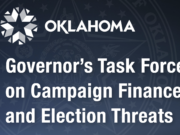As the Trump Administration begins to take shape, the media and pro-regulation voices have honed in on the President-elect’s prospective cabinet and its fidelity towards his campaign pledge to “drain the swamp.” According to academics, self-styled campaign finance “reform” groups, and even current lawmakers, Trump is not only failing to drain the swamp, but has begun filling it with “alligators,” such as Steven Mnuchin, Elaine Chao, and Congressman Tom Price. (Yes, we are in for many weeks of swamp-related metaphors.)
Those critics – mostly on the left – saw Trump’s drain the swamp promise as a potential silver lining to his election. They tend to define DC’s “swamp” in terms of “money in politics,” lobbying, or finance leaders moving into government service, and hoped that these were areas where Trump would buck the trend of his predecessor. They assumed that the President-elect would face relatively more pressure to do so due to his base’s perception of DC as favoring well-connected insiders, and hoped that evidence that he has already fallen short would provoke a revolt among those who voted for him.
This expectation fell apart when interviews with Trump supporters found that most did not particularly care about his appointments. This shouldn’t come as a shock to anybody who noticed that his advocates also did not mind when Trump reversed his pledge to entirely self-fund his presidential campaign.
A common theme for forgiving Trump in these instances is that, ultimately, his supporters trust him to advocate on their behalf, no matter whom he appoints or whether he adheres to specific policy promises. As one interviewee put it:
“If Hillary had won – and you know, she really is a swamp person – she would have had to pay back with favors all these interests that sent her money,” said Mark Ross, 57, in Unionville, Pa., who said he wasn’t a fan of Trump but liked what he said about “flushing out the scum” in Washington. “Do I think it’s really gonna happen? Nah,” he laughed. “But better Trump’s swamp than Obama’s swamp. At least he’s gonna get us something.”
Attacking Trump’s credibility on the art of swamp draining poses additional difficulties as well. For one, the expectation that he eschew any “insider” appointee does not square with his perennial insistence that, as a political neophyte, he will “hire the best people” to help him run the federal government. Describing those with business and government experience as “swamp people” is problematic not only because it is sometimes inaccurate (Steven Mnuchin’s career, for example, has been defined by finance, not government), but it also discounts the basic sensibility of having knowledgeable people in charge of federal agencies, even if they might run them with a different political vision than those appointed under the Obama Administration.
Trump-supporting interviewees are also more focused on the outcomes of his appointments rather than the appointments themselves:
Denise Jones, 54, in Port Matilda, Pa., agreed. “He would never get anything done, would he?” she said. “This is real life, you can’t just play with the good guys. The important thing is he doesn’t need their money.”
Others prefer to reserve judgement, since, after all, the inauguration is still over six weeks away:
“It’s been what, a few weeks? How do you know he isn’t going to drain the swamp? He is not even president yet, tell me how is he supposed to be doing that?” asked a woman who did not want to give her name to “the lying press” in Philipsburg.
Frankly, decisions to remove lobbyists from the transition team and advocate for congressional term limits have been indicators that Trump is trying to shake up business-as-usual in Washington, regardless of how one feels about these proposals. Meanwhile, the fact that the most vocal criticism has gone to the most unconventional selections like General Michael Flynn and Steve Bannon shows that draining the swamp is not the only – or even the primary – criteria for reviewing Trump’s actions by members of the media and the speech regulatory lobby. And it shouldn’t be – an appointee’s qualifications and agenda are most relevant.
It seems that Trump’s critics are most upset that he is deviating from their very specific notion of what draining the swamp ought to entail: greater regulations governing campaign finance, restrictions on lobbyist and donor influence, and fewer wealthy appointees. That is, items that would already be on the political agenda of the “reform” lobby regardless of who the next president is. (And, notably, items that Trump voters rejected when they were included in Hillary Clinton’s platform.)
One should not confuse the universal goals of fighting corruption and improving politics with the particular policy proposals promoted by today’s “reformers.” After all, political spending and lobbying are essential methods of participating in government, which is why the First Amendment protects them. And conversations with Trump voters show that not everybody has the same idea of what makes DC “swampy,” or what to do about it.
All told, the people who are most stridently criticizing Trump are those who were already skeptical of him, while his supporters still appear to be on board. Perhaps it is folly to expect that Americans would drastically change their opinion of Trump only a month after the election. Between his more than a year of constant media presence as a candidate and his decades of national celebrity beforehand, his image will likely remain the same until Americans witness his actions as president.
In the meantime, as with his self-funding flip flop, this debate is simply another forum for people to praise Trump or bash him while promoting their own agenda and tying it to Trump’s drain the swamp rhetoric.














